Monk fruit is popular but rare. This new Durham startup has a sweet solution
The extract from monk fruit has become somewhat of a no-calorie celebrity in the burgeoning $8 billion global market for sugar substitutes.
The fruit is extremely sweet — and rare.
The inner pulp of this small tennis-ball shaped gourd measures between 100 to 250 times sweeter than table sugar, according to the U.S. Food and Drug Administration, but its global supply isn’t able to keep up with its increasing demand. Monk fruit is native only to select provinces within the subtropical mountains of southern China and northern Thailand. Efforts to grow it at scale in the United States have fallen short.
But a Research Triangle startup believes it has a way to commercialize monk fruit sweetener, and it’s growing inside its Durham greenhouses.
Elo Life Systems doesn’t actually use monk fruit to produce the sweetener. Instead, its scientists replicate monk fruit DNA and insert it into more common fruits and vegetables — like tomatoes and watermelons. These surrogate crops are then grown to make monk fruit sweetener themselves.
“We Trojan Horse the fruit,” said Matt DiLeo, vice president of product development at Elo. “We’re teaching the plant to do something new.”
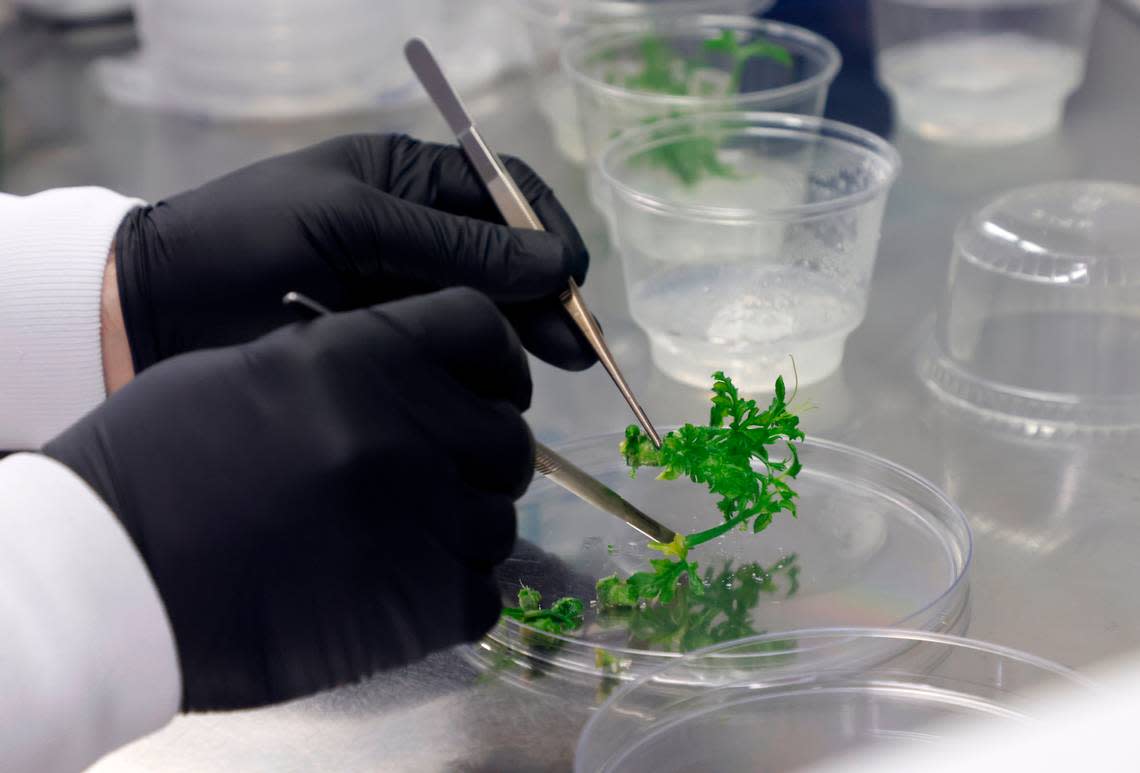
Elo, formerly a division of the Durham-based Precision BioSciences, spun off on its own in December 2021. The company now has 31 employees and occupies offices, wet labs and a greenhouse on the Alexandria Center for Life Sciences campus in Research Triangle Park.
In February, Elo closed its Series A funding round after raising $24.5 million and anticipates expanding its staff by 50% over the next year.
The startup isn’t strictly focused on monk fruit. It has also partnered with Dole to cultivate a disease-resistant banana.
“RTP is the center of so much AgTech and FoodTech right now,” said Todd Rands, Elo’s president and CEO. “We’re really benefiting from the education here, with the population of scientists.”
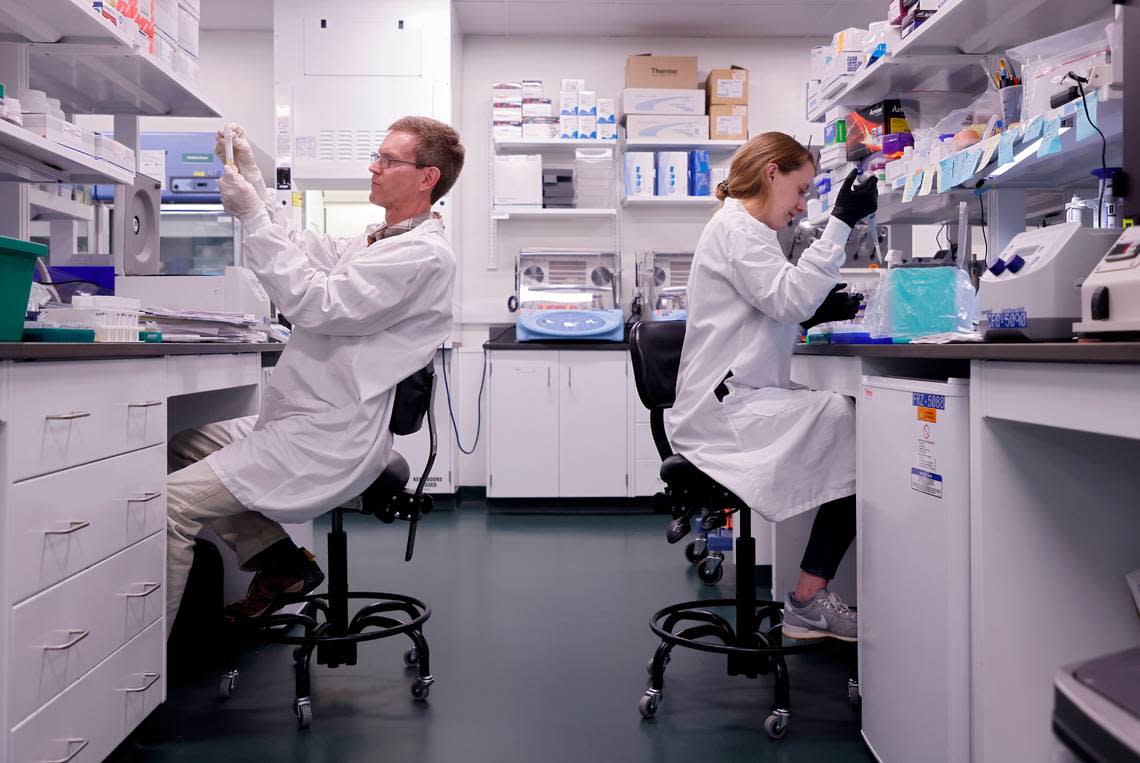
Turning watermelons into monk fruit-inspired sweetener
Producing the sweet taste of the small Asian gourd in large quantities is Elo’s top priority, Rands said.
“When we talk to the food industry, they want (monk fruit extract,) they can’t get enough of it, they would love to use more of it,” Rands said. “And we’re able to go take that same molecule that’s in monk fruit and put it in another crop.”
The primary alternative crop Elo uses is watermelon, which possesses genetic similarities to monk fruit. Both are cucurbits, members of the gourd family, though unlike monk fruit, watermelons can be produced in abundance domestically.
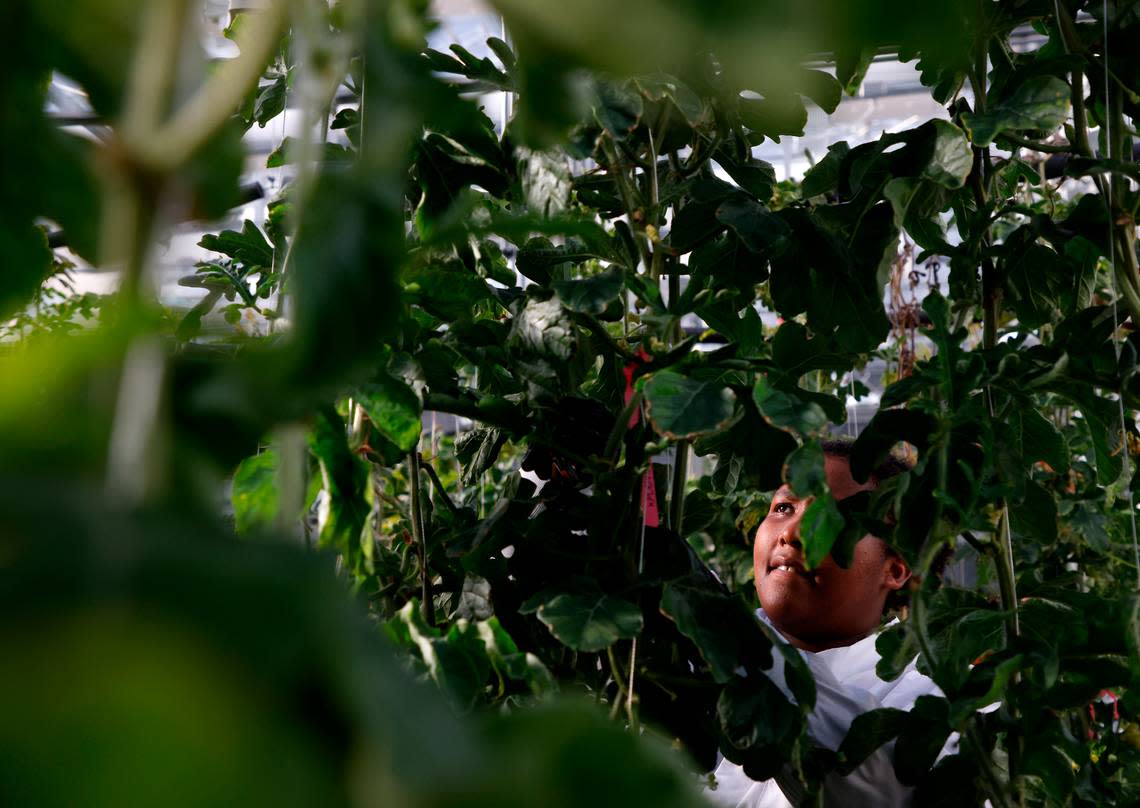
From their exterior, Elo’s watermelons look ordinary. Green and plump, they hang off vines inside a bright greenhouse where the temperature is kept above 80 degrees Fahrenheit. Orange sacks serve as hammocks to support their weight. But at a molecular level, the watermelons are different; a dozen or more of their genes have been modified to trigger the production of monk fruit sweetener.
“We take these really complex pathways and get them to produce the ingredients we need inside of the plant,” Rands said. “So, there’s a lot of engineering that goes on at that level to help get those pathways running to get the output we want.”
Once ready, the watermelons are juiced and purified so that only the monk fruit extract remains, either as a liquid or a powder. At this point, the taste of watermelon has been filtered out, its service as a vessel for the monk fruit taste completed.
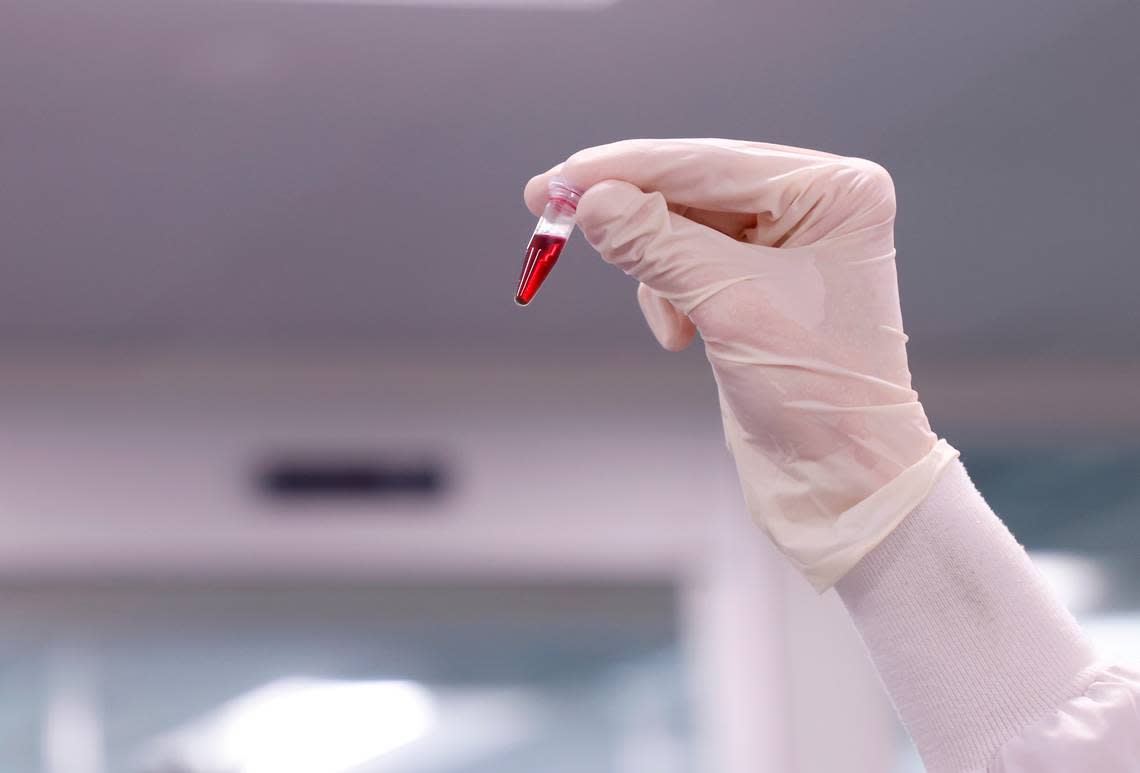
Bringing it to market
Along with watermelon, Elo says it has derived monk fruit taste from around 20 different crops, none of which linger once the sweetener is purified.
Elo is pre-revenue, and Rands said it will consider selling its sugarless sweetener to both other businesses and directly to customers.
Over the next year, the company plans to conduct field trials in North Carolina on its watermelons and use data from these trials to obtain regulatory approvals. The FDA, for instance, must grant new food additives a certification called GRAS, short for Generally Recognized as Safe.
Elo aims to bring its monk fruit sweetener to market by 2026. And as awareness over the adverse health effects of high-sugar diets grows, the startup doesn’t question whether they’ll be a demand for its unique sweetener.
“If there’s one thing we can do that’s going to have the most impact on human health, it would be removing sugar from people’s diet,” Rands said.
This story was produced with financial support from a coalition of partners led by Innovate Raleigh as part of an independent journalism fellowship program. The N&O maintains full editorial control of the work.
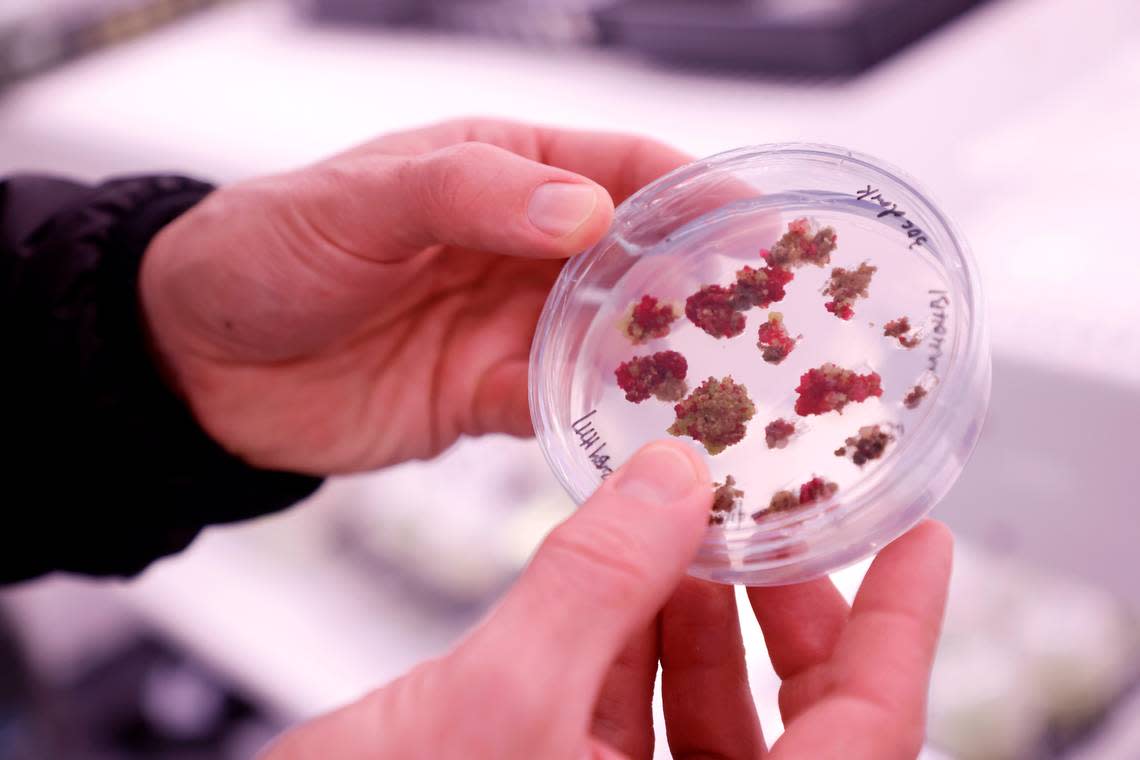

Open Source
Do you enjoy Triangle tech news? Subscribe to Open Source, The News & Observer's weekly technology newsletter and look for it in your inbox every Friday morning. Sign up here.
